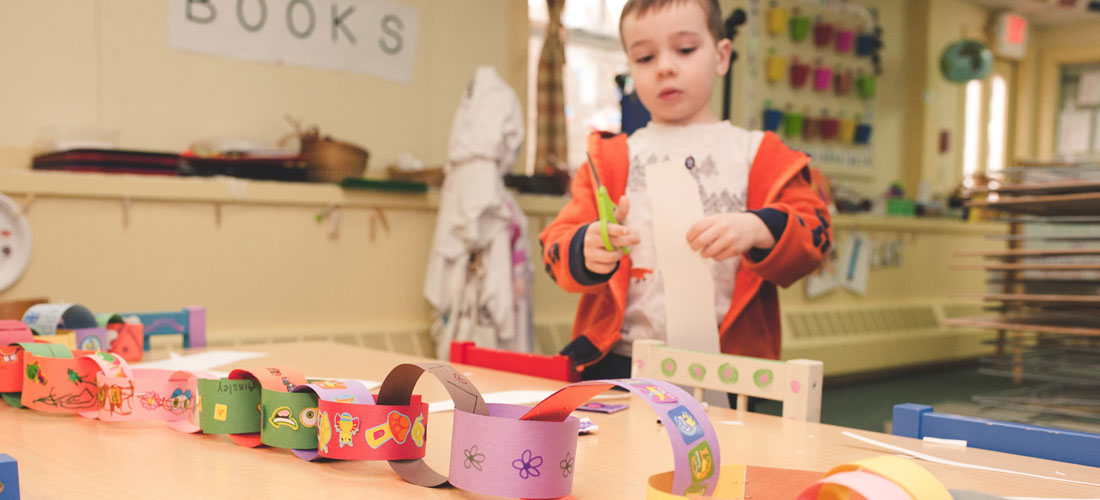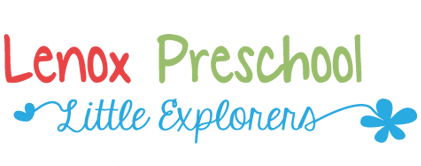The following information is designed to give you an overview of the curriculum and enrichment that your child will be experiencing during their time with us. We believe that children learn in many different ways. To that end, we have developed a curriculum that encompasses the eight ways a child may learn about themselves and their world.

Dr. Howard Gardner, professor of education at Harvard University, developed the theory of multiple intelligences in 1983. It suggests that the traditional notion of intelligence, based on I.Q. testing, is far too limited. Instead, Dr. Gardner proposes eight different intelligences to account for a broader range of human potential in children and adults. These intelligences are:
Linguistic intelligence (word smart)
The Linguistic learning style involves the transfer of information through writing, reading and listening to the spoken word, such as conversation, discussions or debates. If you are linguistic, you think about things using words rather than pictures. If you are linguistic you are good at describing and explaining, and enjoy reading, writing, making up stories and talking about things. You may be quite a calm and reasonable person who is a good listener. You probably find yourself repeating the things you heard from your favorite TV programs a lot too!
Logical-mathematical intelligence (number/reasoning smart)
Logical learners ask lots of questions and are good puzzle solvers. They also like to experiment and see logical and numerical patterns in their work by making connections between pieces of informa- tion. If you are logical you will be good at solving problems using numbers and logic and may even set up little “what if” scenarios for fun. If you are Logic smart, Science, Maths and computer- technology were probably your best subjects at school even if they were not your favorites, but you like to ask a lot of questions. You are also probably good at solving design problems and figuring out how something works and have a good eye for detail. Maybe you like to make secret codes for your friends, or solve mysteries. You may also like to keep all your stuff neat and tidy and write lists before doing things one step at a time. You like to think through a problem carefully and consider all the con- sequences before going through with something.
Spatial intelligence (picture smart)
The Visual-Spatial learning style involves the use of visual or observed things. These include pictures, diagrams, demonstrations, displays, handouts, films, flash cards and flip-charts etc. If you are Visual-Spatial (picture smart) you might be a budding artist or inventor, or have an interest in other crafts like sewing, pottery, woodwork or jewelry making. You may also enjoy other activities where you might have to solve puzzles using pictures and shapes (like jigsaws). You have a pretty vivid imagination and often remember things by seeing pictures in your head, or drawing mind maps. You probably prefer to look at the pictures and diagrams in books before you read them and are good at thinking of ideas for inventions you might like to make.
Bodily-Kinesthetic intelligence (body smart)
Kinesthetic learners benefit from physical experiences such as touching, feeling, holding, doing, and getting practical hands-on experiences. Some Kinesthetic learners may be labeled as hyperactive or been told they have Attention Deficit Hyperactivity Disorder (ADHD). Effective teaching methods for this condition may include activities focused on using physical energy and curiosity. Everyone is kinesthetic (Body-Smart), but some more than others. Body-Smart people learn best by actively using their body to learn. Good Body-Smart people also require the careful and quick coordination of joints, muscles, nerves and other body parts too. Being Body-Smart is about thinking and feeling through touch and movement, as well as having the skill to enjoy lots of sports and physical activity.
Musical intelligence (music smart)
The Musical learning style involves the transfer of information through sound, song, music and listen- ing to jingles, rhythms and rhymes. If you are musical you enjoy making and listening to music and find you remember well by repeating things back to yourself in a rhythm. You probably like lots of different types and styles of music, and choose which you listen to depending on your mood. Maybe you even write your own songs? You frequently hum, whistle or sing to yourself and find you have a jingle or piece of music in your head wherever you go.
Interpersonal intelligence (people smart)
Interpersonal learners benefit from being able to see things from others point of view. I.e. to re-enact the movement of an animal or consider how an individual may have been feeling at the time and place of an historic event. People-Smart people, (Interpersonal intelligence) enjoy working, learning, helping and being around other people. If you are Interpersonal then you will be a pretty considerate person and enjoy mixing with lots of friends. You probably are a member of numerous clubs, enjoy playing team games and like to share things. You have a good ability to tell how others are feeling by their tone of voice or body language and people often come to you for support or advice.
Intrapersonal intelligence (self smart)
Intrapersonal people are particularly determined and can work well with personal deadlines and goals. They may sometime shy away from others and find it easier to work alone and quietly, but it is likely that they will be strong in one or two more intelligences. If you are intrapersonal then you are really good at knowing how you are feeling and how you may react to certain situations in the near future. If you are intrapersonal you are pretty independent and are happy spending time alone.You may find it easier to learn by thinking and working quietly on your own somewhere. Some people might think you can be quite shy sometimes. You are also a determined character who might not be as at risk to peer pressure, and you probably have a good idea of your own strengths and weak- nesses and what you would like to be when you’re older. Perhaps you like to set yourself personal goals, or you might have a hobby that you like to keep to yourself.
Naturalist intelligence (nature smart)
Naturalistic learners, much like kinesthetic learners, flourish from being able to touch, feel, hold, and try practical hands-on experiences, but generally outdoors within the environment, nature and animals. There are literally millions of ways to be Nature-Smart! Being Naturalistic generally means you are very interested and curious of your surroundings. Whether you like star-gazing, collecting bugs or rocks, gardening, looking after animals, cooking or even just playing out with friends, these are all ways of being Nature-Smart.

